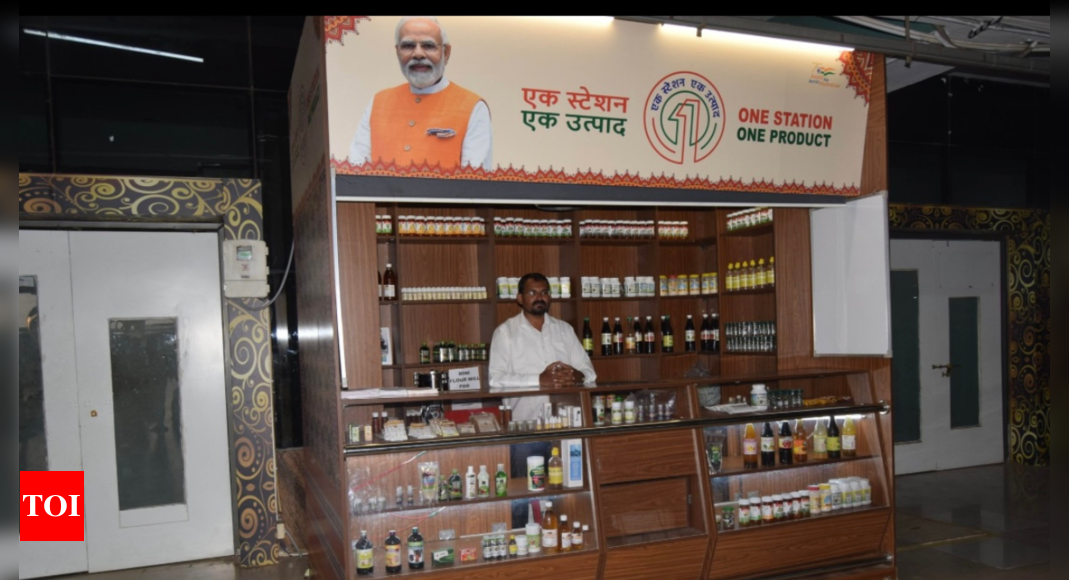
MUMBAI: The One Station One Product (OSOP) initiative, a government scheme aimed at promoting local crafts and products at railway stations across India, has seen growth across the country — with 1,854 operational outlets showcasing India’s rich and diverse local products.
“Central Railway alone accounts for 157 of these outlets, demonstrating its strong commitment to the initiative. Within Central Railway, the Bhusaval Division stands out with 25 operational OSOP outlets, all of which are thriving and actively contributing to the local economy,” said Bhusaval divisional railway manager Ity Pandey, adding that all of them are led by women.
This widespread implementation of OSOP reflects the government’s vision of turning railway stations into vibrant marketplaces that celebrate and support local craftsmanship, she said.
To make it a pan-India phenomenon, the ministry of railways has introduced various policy updates to strengthen the scheme.Starting with the vision of making “vocal for local” a reality, the scheme has
now created a market for indigenous products at important railway stations.
These stalls not only allow passengers to experience India’s rich heritage but also provide additional income opportunities for marginalized sections of society. Initially allocated for a period of 15 days with a minimal registration fee, these outlets are now being allotted for three months wherever demand exists. This change aims to provide stability and growth opportunities to local entrepreneurs.
The OSOP initiative has made significant strides in empowering women across the Bhusaval Division. Women entrepreneurs are showcasing local products ranging from Paithani sarees and purses to packed roasted
products in Bhusaval and Jalgaon, and bamboo crafts in Akola. It is women all the way. These enterprises are being led by women from lower-income groups. Not only are these outlets becoming platforms of profitability, but they are also providing training and employment opportunities to other women in the
community, Pandey added.



